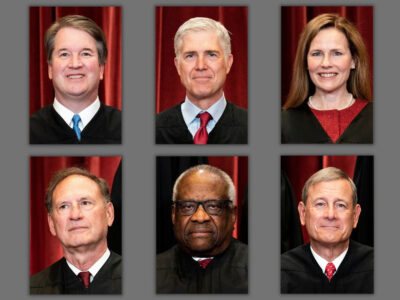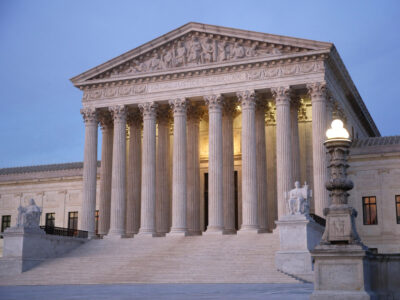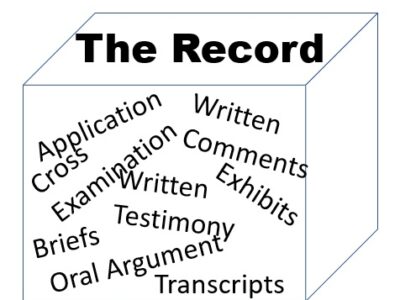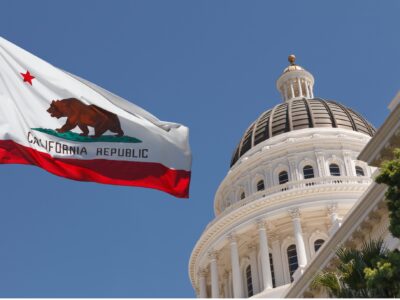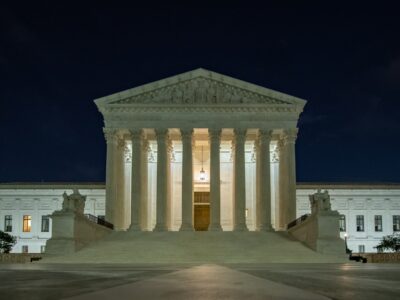Regulation
The D.C. Circuit and the Biden Power Plant Rule
The court’s denial of a stay is very good news for EPA
The D.C. Circuit frequently denies stays, but this ruling was notable for three reasons: It allows an important climate change regulation to go into effect; it clarified an important legal doctrine; and it has a good chance of being upheld on appeal.
CONTINUE READINGIs 2025 the Year of the Carbon Tax?
Carbon border adjustment mechanisms are increasingly the talk of Washington. UCLA Law’s Kimberly Clausing explains some of the options on the table.
There’s a big, important tax debate looming next year—one with opportunities and risks for climate policy, particularly the idea of a carbon tax. It can be hard to see this debate thanks to the daily churn of the 2024 presidential election, but it’s there on the horizon if you squint. For one thing, we’ll likely …
Continue reading “Is 2025 the Year of the Carbon Tax?”
CONTINUE READINGUnderstanding Loper: A Sheep in Wolves’ Clothing?
The real world effects may be limited. Or they may undercut presidential power, to the surprise of advocates of the unitary executive.
Because there are so many outstanding questions about the Court’s new approach to judicial review, we won’t know its practical impact for some time. Its symbolic impact as an affirmation of conservative ideology is more obvious.
CONTINUE READINGUnderstanding Loper: The Grandfather Clause
Hundreds of past federal cases relied on Chevron. They remain good law.
To cushion the shock of abandoning Chevron, the Supreme Court created a safe harbor for past judicial decisions. This was well-advised. The Court itself applied Chevron at least seventy times, as did thousands of lower court decisions. The key question will be the scope of the grandfather clause. The Court’s discussion began by saying that …
Continue reading “Understanding Loper: The Grandfather Clause”
CONTINUE READINGUnderstanding Loper: The Primacy of Skidmore
A previously obscure 1944 case will now be central to judicial review.
Some commentators have tended to write off Skidmore and assume that judges will ignore agency views after Loper Bright. That is a misreading of the Court’s opinions in Loper and in Skidmore itself.
CONTINUE READINGUnderstanding Loper: Delegation & Discretion
Something similar to Chevron deference may still apply to many (most?) regulations.
The Supreme Court took away Chevron deference, but it also recognized that Congress can give agencies the power to clarify statutes and fill in gaps.
CONTINUE READINGPlaying fast and loose with reality
How the US Supreme Court’s recent decisions enable greater reliance on “alternative” facts
As the U.S. Supreme Court has moved into an era of second-guessing federal administrative agencies to an extent that we have not seen in 80 years, it has delivered yet another blow to reliance on accurate facts. When I served as an administrative law judge for California’s state utility regulators, my job in each proceeding …
Continue reading “Playing fast and loose with reality”
CONTINUE READINGCalifornia can help meet its climate goals by removing SERP’s sunset date
By Molly Bruce, Dave Smith, Michael Kiparsky, Derek Hitchcock, Peter Van De Burgt, Sydney Chamberlin, Megan Cleveland
Many regulatory clearances like permits aim to guard against projects that pose harm to the environment. However, permitting can also undercut environmental restoration efforts. While restoration is designed to remedy environmental harms and improve resilience to climate change, permitting can substantially increase project costs and slow or altogether impede environmentally beneficial projects. Striking an effective …
Continue reading “California can help meet its climate goals by removing SERP’s sunset date”
CONTINUE READINGLosing Chevron: What Does It Mean for California?
The Supreme Court’s decision in Loper Bright will not necessarily impact how California courts review our state agency determinations. But we’ll feel it in other ways.
A question I’ve been getting a lot since the Supreme Court overturned the Chevron doctrine is: “What does this decision mean for California?” Here are three takeaways about how the Golden State is likely—or not—to be impacted at first blush. First, the decision does have the potential to impact California directly in some pending litigation. …
Continue reading “Losing Chevron: What Does It Mean for California?”
CONTINUE READINGIs Loper v. Raimondo Really the Power Grab Commentators Assume?
The Supreme Court has already grabbed power from agencies through the major questions doctrine.
Headlines about today’s decision in Loper v Raimondo overturning the 40 year-old decision in Chevron v NRDC that granted agencies deference in their interpretation of ambiguous statutes focus on the “massive power grab,” the decision’s “sweeping” nature and call it a “blow” to the administrative state. My view may be idiosyncratic but I don’t view …
Continue reading “Is Loper v. Raimondo Really the Power Grab Commentators Assume?”
CONTINUE READING




